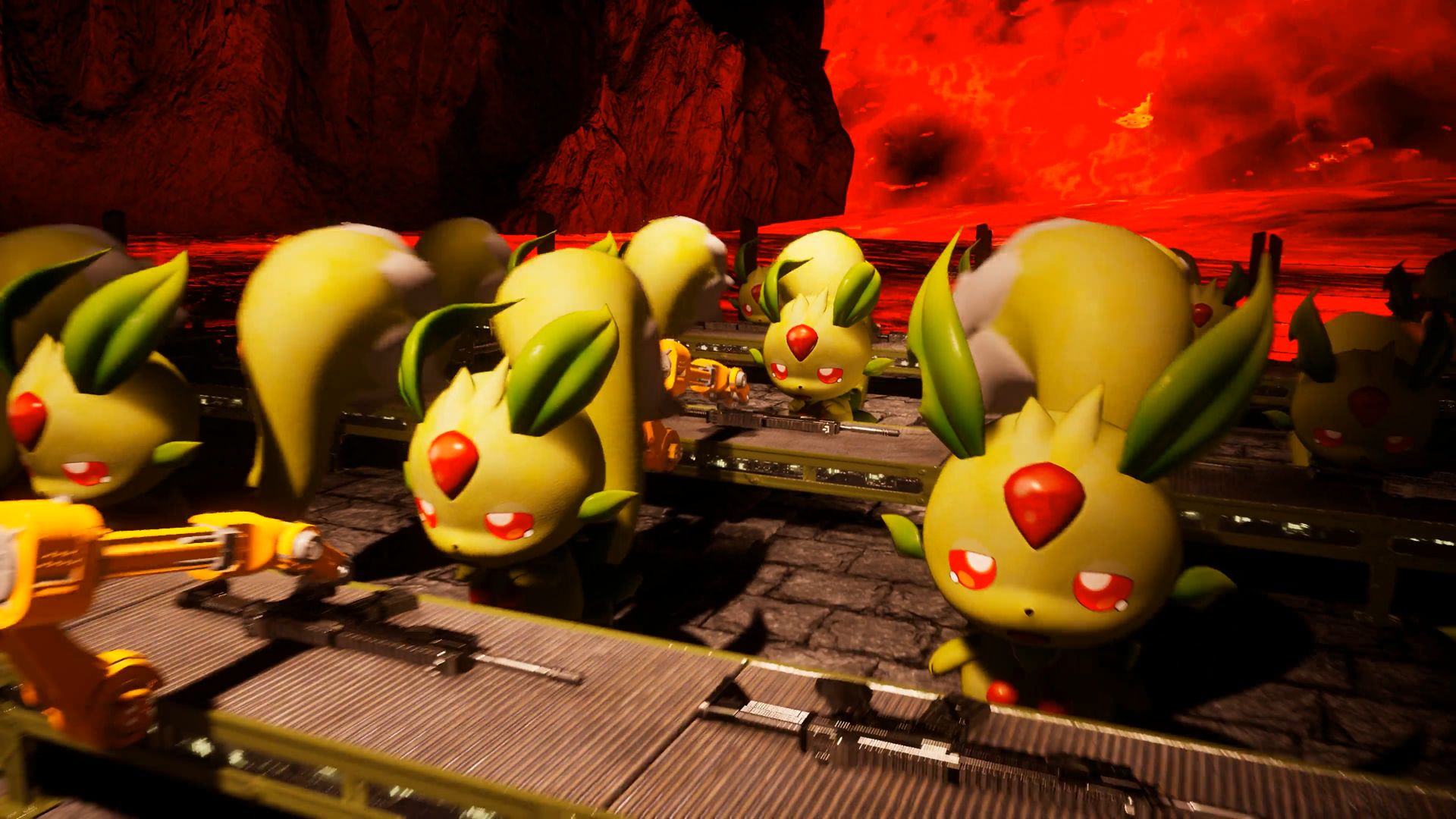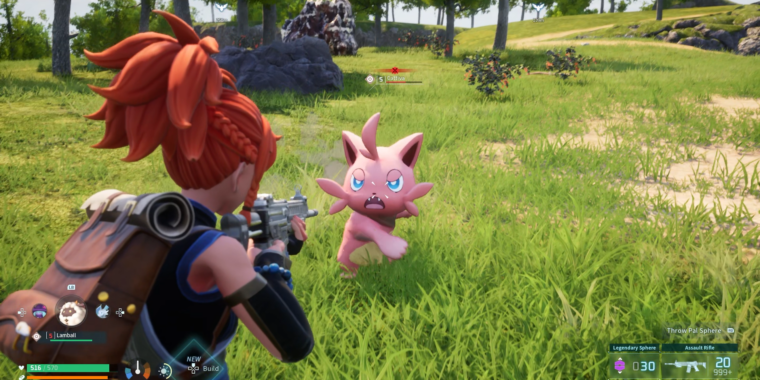Pocketpair
Palworld‘s head of community has a radical idea: Stop caring about how many people are playing a game at the same time as you. It’s pitched mostly at developers and games media, but John Buckley also wants players to let go of the “dead game” mentality.
“Who cares if there’s only five people playing it? Just enjoy yourself. Just enjoy games. I don’t think it needs to be any more complex than that,” Buckley said in an interview on the Going Indie YouTube channel.
The people at Palworld developer Pocketpair, in particular, would have reason for panic, if they subscribed to the mentality that active online players are the key benchmark for modern gaming. The game launched into Early Access in January 2024 at rocket speed, selling 5 million copies and reaching 1.3 million concurrent Steam players, surpassing Elden Ring and Baldur’s Gate 3. By February 1, the game had sold 19 million between Xbox and Steam, and was the biggest third-party game launch yet on Xbox’s Game Pass service.
Given that the creature-catching/survival game with a notably chill approach to intellectual property has so far managed to avoid being sued into oblivion by Pokémon, most would consider it a success. And yet, gaming sites and streaming personalities made sure to note that Palworld suffered “Steam’s biggest-ever two-week drop” by mid-February or was “looking like a dead game,” as streamer Asmongold said into the microphone around that same time.
Palworld community boss John Buckley, interviewed by Going Indie.
“It is fine to take breaks from games”
As far back as February 20, Buckley (or “Bucky”) has been pushing back against metrics as the thing that matters. “This emerging “Palworld has lost X% of its player base” discourse is lazy,” Buckley wrote on X, “but it’s probably also a good time to step in and reassure those of you capable of reading past a headline that it is fine to take breaks from games.” Lots of what Buckley wrote then, and said in the recent interview, is some combination of common sense and remarkable candor: Stop when you’re done, play other games, try different genres, support indies, in particular, and don’t worry about Palworld, which will put out more content, but not constantly.
As noted by Going Indie’s host, a “dead game” can earn that label through many vectors: concurrent players, developer support, or competitive environment, to name a few. Every game in existence will be “dead,” eventually, and that used to be a normal, good thing. Developers started new projects, and players looked forward to new experiences.
But the advent of “live service” games, meant to pull in more money over time through subscriptions and microtransactions, has made a game something that publishers, especially the large kind, never want to see die. They create consistent revenue, rather than the spikes of traditional game publishing, and there are North Stars to look to, like GTA Online. (Or, until recently, Destiny and Destiny 2).
“I don’t think it really serves anyone to push gamers to just play the same game day in, day out,” Buckley tells Going Indie. While some games, like League of Legends or an MMO, are built to avoid burnout, “Whereas what we’re seeing now is a trend of—I won’t necessarily say who’s trying to push it, but a lot more people are trying to push gamers to play games that aren’t really designed to be played for months on end.”

“Updates, updates, for the good of our economy, there must be more updates.”
Pocketpair
Palworld suggests people like new things
While Palworld allows for online play, its huge concurrent player numbers were not the result of its developer carefully cultivating a fear of missing out (FOMO) among players. As Ars’ Andrew Cunningham wrote at the peak of Palworld’s success, it was more about the devs giving something new to a community that had been habitually starved for something truly new:
Sure, many people are here to see a machine-gun-toting Pikachu mow down other Pikachu. But a ton of people are also there to voice some kind of discontent with the Pokémon franchise as it currently stands, expressing a desire for a deeper and more communal game. … I think we can look at the combination of reviews, sales, and active users and see that there is clearly an audience hankering for more radical change.
In other words: Moving on to the next ideas rather than competing to keep the same limited pool of constantly online gamers engaged with shareholder-friendly continuity.
“I don’t think you need to be kinda pushing yourself to play the same game all the time,” Buckley says in the interview. “It’s not healthy for us, it’s not healthy for developers, it’s not healthy for gamers, it’s not healthy for gaming media, and it’s just not healthy for our industry. Because the more we push this kind of narrative, the more very large companies are going to say, ‘Gamers want more live service,’ and we’re just going to get more of these really soulless live service games that come out and then get shut down nine months later, 12 months later, because they’re not making enough money.”










